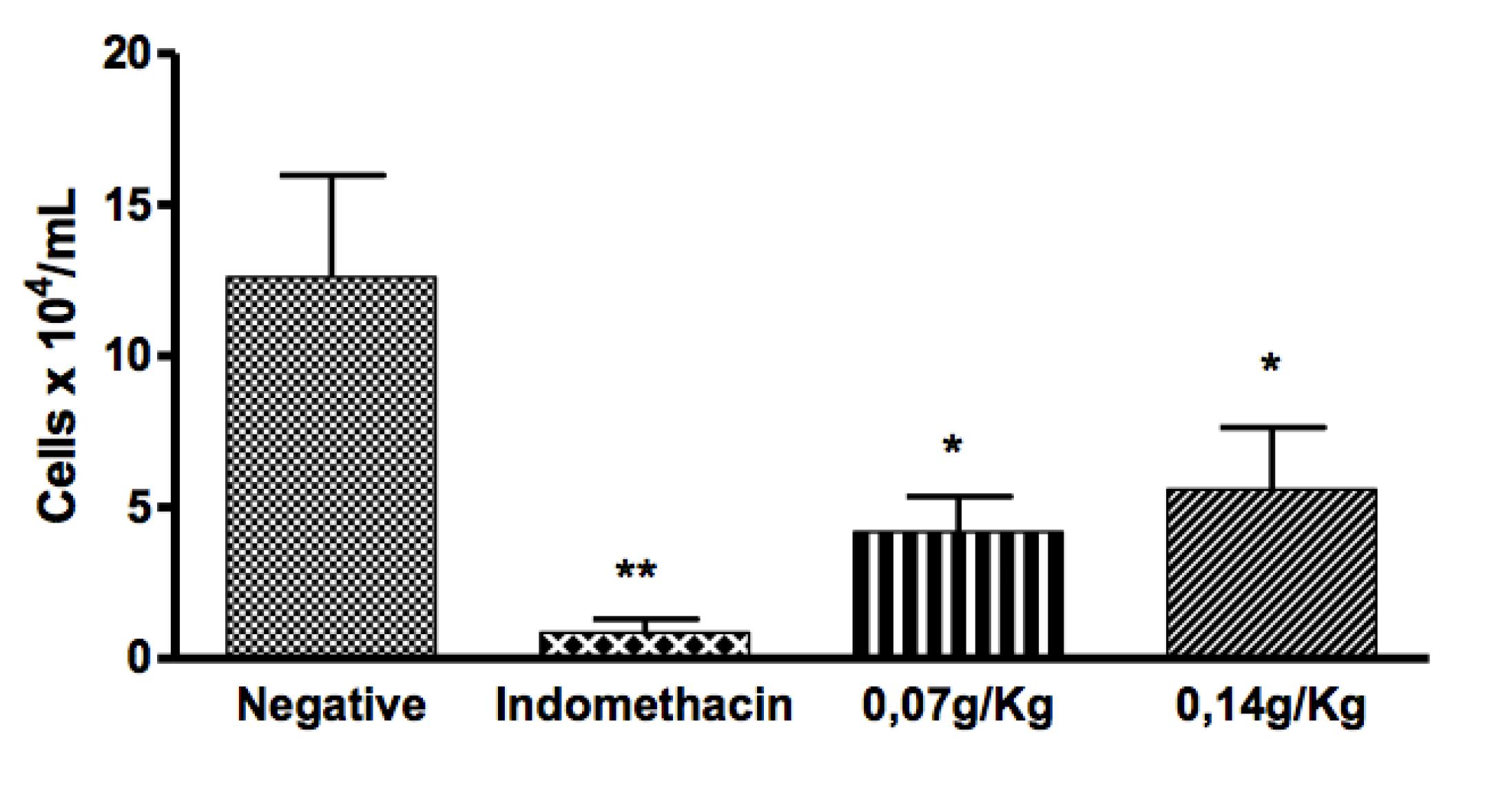PURPOSE:
To evaluate the anti-inflammatory and analgesic effects of green tea (Camellia sinensis) in mice.
METHODS:
The anti-inflammatory effect of alcoholic extracts of green tea (AE) was evaluated in a cell migration assay with four groups of six Swiss mice receiving 0.07g/Kg or 0.14g/Kg EA (treatment groups), saline (negative control) or 10mg/Kg indomethacin (positive control) by gavage. One hour later 300 µg carrageen an was administered intraperitoneally or subcutaneously. The analgesic effect was evaluated using four groups of six animals receiving 0.07g/Kg or 0.14g/Kg EA, saline or 10mg/Kg indomethacin subcutaneously, followed 30 minutes later by 1% acetic acid.
RESULTS:
When administered subcutaneously at either dose (0.07g/Kg and 0.14g/Kg), AE inhibited carrageenan-induced cell migration (p<0.05). However, when administered by gavage, only the latter (0.14 g/Kg) was efficient (p<0.05). AE at both doses (0.07g/Kg and 0.14g/Kg) inhibited abdominal contortions (p<0.05), but the effect was not dose-dependent.
CONCLUSION:
Green tea was shown to have analgesic and anti-inflammatory properties and may constitute a natural treatment option in chronic inflammatory disorders.
Camellia sinensis; Catechin; Anti-inflammatory Agents; Analgesics; Mice



